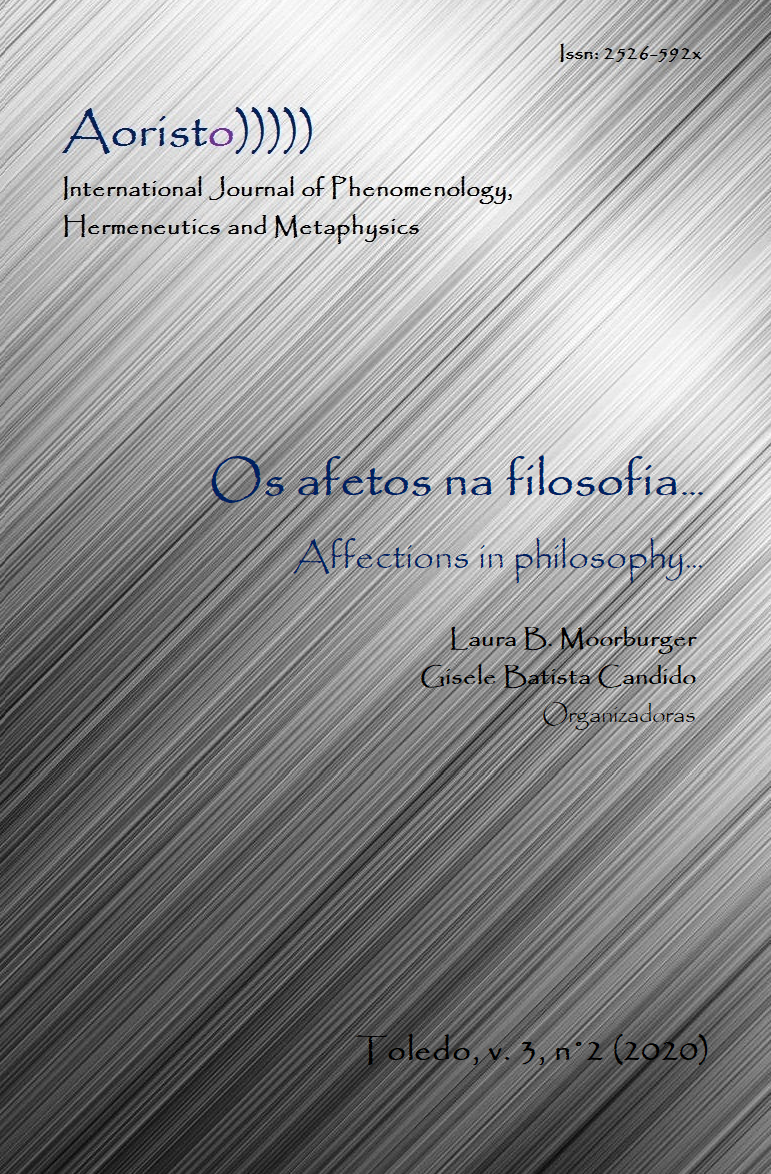A defense of the romantic longing against Hegel’s critique
DOI:
https://doi.org/10.48075/aoristo.v3i2.30559Palabras clave:
Sehnsucht, affection, passitivy, activityResumen
This paper questions Hegel’s critique to the central place that Romantic authors Friedrich Schlegel and Novalis gave to the dimension of affection in their philosophical thinking, as well as to the way they link philosophy and poetry. The summit of this affective and poetical tendency of the Romantics is the so-called Sehnsucht – the infinite longing or aspiration – which Hegel criticizes in a very truculent manner. The interest of this debate is not limited to the studies on the famous controversy Hegel versus Romanticism; in a broader sense, it presents a singular case of a certain dissent on the way how philosophy takes a stand on the matter of affection and poetry. In Hegel’s case, this stand is one that poses a strong hierarchy in which reason and the conceptual activity of thinking are superior to the dimension of feelings, and this hierarchy also unfolds as a superiority of the philosophical over the poetical – while the Romantics endeavoured, precisely, to unravel such hierarchy. This paper defends the importance and deepness of the affective dimension promoted by the Romantics, whilst also attempts to deconstruct some of the main assumptions of Hegel’s critique.
Descargas
Publicado
Cómo citar
Número
Sección
Licencia

Esta obra está bajo una licencia internacional Creative Commons Atribución-NoComercial-SinDerivadas 4.0.
Copyright Notice
1. I grant the AORISTO – International Journal of Phenomenology, Hermeneutics and Metaphysics the first publication of my article, licensed under Creative Commons Attribution (which allows sharing of work, recognition of authorship and initial publication in this journal).
2. I confirm that my article is not being submitted to another publication and has not been published in its entirely on another journal. I take full responsibility for its originality and I will also claim responsibility for charges from claims by third parties concerning the authorship of the article.
3. I also agree that the manuscript will be submitted according to the Aoristo’s publication rules described above.
License Creative Commons
This work is licensed under a Creative Commons Atribuição-NãoComercial-CompartilhaIgual 4.0 Internacional, which allows you to share, copy, distribute, display, reproduce, in whole or in part, for as long as there is no commercial purpose, and authors and source are cited.


